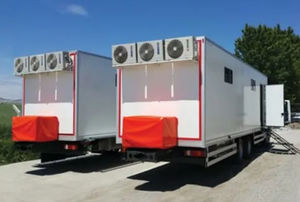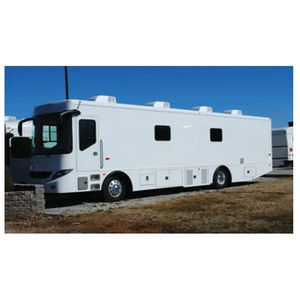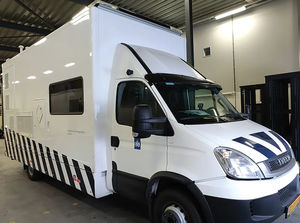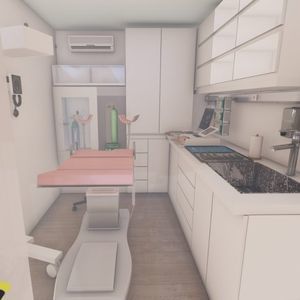
- Primary care
- Emergency medicine, Resuscitation
- Rescue mobile health vehicle
- ICU AUTOMOTIVE IMPORT EXPORT AND CONSULTING.
- Products
- Catalogs
- News & Trends
- Exhibitions
Rescue mobile health vehicle multipurposegeneral medicinedental care
Add to favorites
Compare this product
Characteristics
- Applications
- rescue, dental care, general medicine, multipurpose
- Configuration
- box
- Motor type
- diesel
- Transmission
- automatic
- Motor power
Max.: 180 ch
(180 hp)Min.: 110 ch
(110 hp)- Maximum permissible laden weight
1,480 lb, 2,000 lb, 2,837 lb, 4,250 lb
(671 kg, 907 kg, 1,287 kg, 1,928 kg)- Total length
186 in
- Total width
68 in
- Total height
73 in
Description
Mobile health vehicles, also known as mobile clinics or healthmobiles, are medical vans and trucks outfitted to provide healthcare services directly to patients. They expand access to medical care by bringing services to underserved communities.
Mobile health vehicles serve a vital purpose in providing healthcare services to those who otherwise may not have access, such as low-income neighborhoods, rural areas, and homeless populations. They help eliminate transportation barriers so patients can conveniently receive medical care right in their communities.
The use of vehicles for healthcare delivery has a long history, dating back over 50 years. Early healthmobiles focused on bringing pediatric care and immunizations to children in rural areas. Over time, mobile health vehicles expanded services to include adult primary care, chronic disease management, dental care, vision exams, mental healthcare, and more.
Key benefits of mobile health vehicles include:
Improving healthcare access and health equity
Delivering care directly to underserved populations
Providing a range of medical services conveniently and locally
Saving patients time and transportation costs
Flexibility to serve different locations as needed
Ability to quickly deploy medical services when needed
Today, mobile health vehicles play an important role in community health programs, disaster relief efforts, medical research, and reaching vulnerable populations. They continue to evolve as an innovative care delivery model improving access to medical services.
Catalogs
No catalogs are available for this product.
See all of ICU AUTOMOTIVE IMPORT EXPORT AND CONSULTING.‘s catalogsOther ICU AUTOMOTIVE IMPORT EXPORT AND CONSULTING. products
Mobile Health Vehicles
Related Searches
- Stretcher
- First response vehicle
- Non-invasive ventilator
- Emergency stretcher
- Foldable stretcher
- Van first response vehicle
- Mobile health vehicle
- Portable ventilator
- CPAP ventilator
- Emergency ventilator
- Transport ventilator
- Truck mobile health vehicle
- Ambulance with oxygen cylinder
- Box body ambulance
- Stretcher on casters
- Compact ventilator
- Type A ambulance
- Type B ambulance
- Off-road ambulance
- Diesel ambulance
*Prices are pre-tax. They exclude delivery charges and customs duties and do not include additional charges for installation or activation options. Prices are indicative only and may vary by country, with changes to the cost of raw materials and exchange rates.







